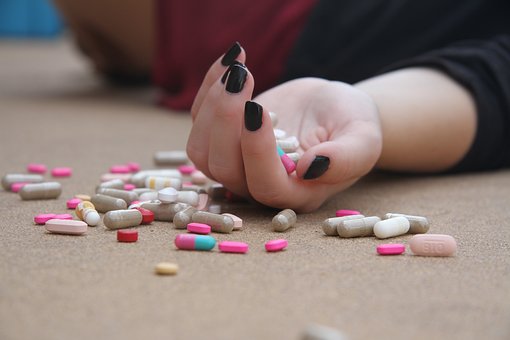Depression is a mental state of low mood and aversion to activity. It affects more than 280 million people of all ages (about 3.5% of the global population). It affects a person’s thoughts, behavior, feelings, and sense of well-being. Depressed people often experience loss of motivation or interest in, or reduced pleasure or joy from, experiences that would normally bring them pleasure or joy. Depressed mood is a symptom of some mood disorders such as major depressive disorder and dysthymia

Depression overview
An estimated 3.8% of the population experience stress, including 5% of adults (4% among men and 6% among women), and 5.7% of adults older than 60 years. Approximately 280 million people in the world have depression (1). It is about 50% more common among women than among men
2% to 3% of children ages 6 to 12 may have serious depression. 20% of adolescent girls have experienced a major depressive episode. 6.8% of adolescent boys have experienced a major depressive episode. 71% of adolescents who experienced a major depressive episode in the past year experienced a severe impairment.
Cause of depressed world
Life events
Adversity in childhood, such as bereavement, neglect, mental abuse, physical abuse, sexual abuse, or unequal parental treatment of siblings can contribute to depression in adulthood. Childhood physical or sexual abuse in particular significantly correlates with the likelihood of experiencing depression over the survivor’s lifetime.
Life events and changes that may cause depressed mood include (but are not limited to): childbirth, menopause, financial difficulties, unemployment, stress (such as from work, education, family, living conditions etc.), a medical diagnosis (cancer, HIV, etc.), bullying, loss of a loved one, natural disasters, social isolation, rape, relationship troubles, jealousy, separation, or catastrophic injury. Adolescents may be especially prone to experiencing a depressed mood following social rejection, peer pressure, or bullying.

Personality
Depression is associated with low extraversion, and people who have high levels of neuroticism are more likely to experience depressive symptoms and are more likely to receive a diagnosis of a depressive disorder.
Types of depressed people
There are different types of depression. The symptoms for each can range from relatively minor (but still disabling) through to very severe. The main types of depression are:
- major depressi..
- dysthymic disorder
- bipolar disorder (which used to be called manic depressio.)
- cyclothymic disorder
- seasonal affective disorder (SAD).
Treatment
#1.Psychological treatments (also known as talking therapies) have been found to be an effective way to treat depression. They can help you change your thinking patterns and improve your coping skills so you’re better equipped to deal with life’s stresses and conflicts.
As well as supporting your recovery, psychological therapies can help you stay well by identifying and changing unhelpful thoughts and behaviour.
There are several different types of psychological treatments including:
- cognitive behaviour therapy (CBT)
- interpersonal therapy (IPT)
- behaviour therapy
- mindfulness-based cognitive therapy (MBCT).
CBT is one of the most commonly used psychological therapies. It helps people with depression to monitor and change negative patterns of thinking and improve their coping skills so they are better equipped to deal with life’s stresses and conflicts.

#2
Depression is unlikely to simply go away on its own. In fact, if ignored and left untreated, depression can go on for months, sometimes years, and can have many negative effects on a person’s life.
Every person needs to find the treatment that’s right for them. It can take time and patience to find a treatment that works.
Different types of depression require different treatment. Mild symptoms may be relieved by:
- learning about the condition
- lifestyle changes (such as regular physical exercise)
- psychological therapy provided by a mental health professional or via online e-therapies.
For moderate to more severe depression, medical treatments are likely to be required, in combination with these other treatments.
Treatment for depression should start with seeing your doctor. Book an extended consultation to give you time to discuss your symptoms and treatment options. Your doctor may ask you to fill out a screening questionnaire or conduct some tests to rule out other conditions.
